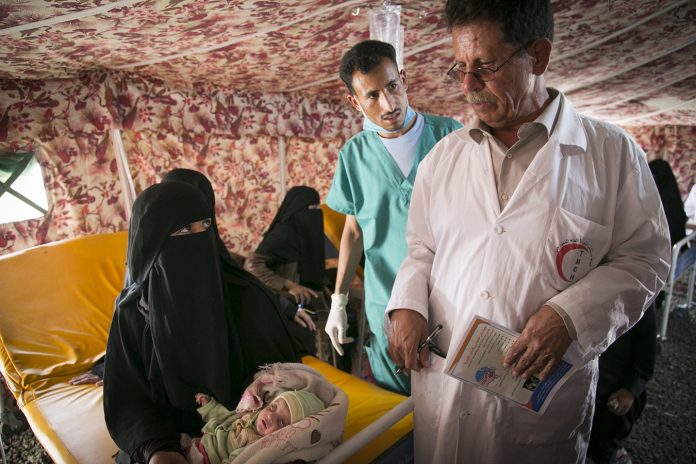
The United Nations Population Fund (UNFPA) has warned of the death of more than 48,000 women in Yemen from complications of pregnancy and childbirth in Yemen due to severe funding shortages and the possible closure of reproductive health facilities, amidst rising risks posed by COVID-19.
In a statement on Wednesday, the UN agency stressed that the dire humanitarian situation for Yemeni women would deteriorate as the COVID-19 pandemic has already entered the country.
In order to save more lives and protect the Yemeni women, the UNFPA said that it was calling for urgent funding of $59 million provide life-saving reproductive health care and women’s protection services until the end of the current year.
“If lifesaving reproductive health services are stopped it will have catastrophic consequences for women and girls in Yemen – placing them at even greater risk,” said Dr. Natalia Kanem, UNFPA Executive Director. “Yemen urgently needs funding to keep health facilities open to protect the health and safety of women and girls.”
The UN agency further stressed that an additional $24 million was also needed for the COVID-19 response to protect health workers and help women and girls have access to reproductive health services in Yemen.
According to UNFPA, nearly half of all health facilities in Yemen are not functioning or only partially functioning, and “only 20 percent of health facilities provide maternal and child health services due to staff shortages, lack of supplies, inability to meet operational costs, or damage due to the conflict.”
Moreover, equipment and medical supplies are insufficient or obsolete, the UN agency said, adding that health workers have not been paid, or have only been irregularly paid, in more than two years.
It also warned that if the global pandemic was prolonged, the number of women without having access to family planning, and those facing unintended pregnancies, gender-based violence and other harmful practices could significantly soar by millions of cases in the next couple of months.
The UN agency further warned that a serious funding shortage would force UNFPA to stop the flow of providing life-saving reproductive health services in about 140 health facilities in the impoverished country.
If such facilities shut down, an estimated 320,000 pregnant women would lose services from reproductive health centers and over 48,000 women could lose their lives of emergency obstetric complications in Yemen, it further warned.
Separately on Wednesday, the World Health Organization (WHO) warned that the COVID-19 contagious disease was going to be widespread in war-ravaged Yemen and affected a large number of people there.
Figures from health ministry of Yemen show that as of Thursday, 25 people have tested positive for COVID-19 and five others have died of the disease


























